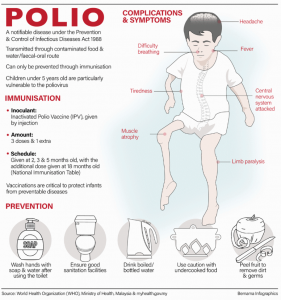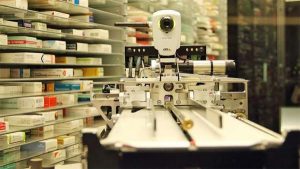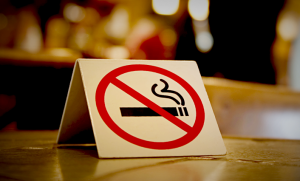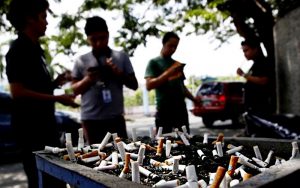Operation Vaccination: Yay or Nay? [Updated]

[UPDATE] As of 8/12/2020
The Light at the End of the Tunnel
On 8 December, the United Kingdom has been the very first nation to begin vaccinating its citizens. 90 year-old Margaret Keenan was the first Briton to receive the Pfizer/BioNTech vaccine. The UK has also placed an order for the Moderna vaccines for a part of its population.

This signifies a huge step in the race for a viable and effective vaccine. Better yet, the FDA is expected to join the UK in authorizing the emergency use of vaccines in the US by this week.
On Local Shores
Minister of Science, Technology and Innovation Khairy Jamaluddin has clarified that the government has only reached out to 2 parties so far regarding vaccine procurement, and that is Pfizer and COVAX. Any other arrangements done by private companies have nothing to do with the Ministry of Health.
Khairy also stated that any companies are allowed to deal with vaccine manufacturers outside Malaysia. However, they will need to go through the ministry’s approval.
Amidst accusations that our government has exhausted the 3 billion ringgit allocation on the Pfizer and COVAX vaccines, Khairy has clarified that we are still well within reach of the hefty budget.
Previously
Eight months that have felt like years, eight months that have passed us by. Since Malaysia was hit by the pandemic in late February, time seems to have been abnormally reduced to a crawl. Each day, we hear the occasional grumble when people are asked to check in each and every location they reach via MySejahtera, or are reminded to observe social distancing by the frazzled waiter at the café.
After what has seemed like forever, we finally see some light at the end of the tunnel that is COVID-19. Recent news have turned their spotlights onto the new hope that has appeared in the Pfizer vaccine agreement announced by Prime Minister Tan Sri Muhyiddin Yassin. With 30% of the nation set to benefit from the vaccination come 2021, are we finally seeing the end of the coronavirus seige?
A Closer Look at the Malaysian Vaccine Plan
Before we start to sing Hallelujah, let’s take a closer look at the plan laid out by the current government with regards to the vaccine brought in by Pfizer. The vaccine agreement, signed to benefit 6.4 million Malaysians next year, is barely the first step to bringing the vaccine onto national soil.
As of the time of writing, the Pfizer vaccination is pending approval from the US Food Drug Administration (FDA), arguably the drug regulatory body with the highest credibility of the day. After passing the approval, the vaccine will still need to pass the tests by the National Pharmaceutical Regulatory Agency, the local regulatory body before it can be distributed, sold and used in the country.
Malaysia, however, is taken no chances in combating the virus solely through the vaccine of a single company. The Prime Minister also announced in the press conference that they will be acquiring the license to conduct Phase III clinical trials of the vaccine developed by China to determine its efficacy and safety in Malaysians. He also mentioned that they are in talks with 10 of the 12 leading manufacturers of the COVID-19 vaccine to obtain their products, in a multipronged effort to cover vaccination of at least 60% of the population.
Haiyaaaa, why so mafan (troublesome)? People are dying already leh!

The reason for the many levels of red tape is meant to provide safety net to the Malaysian public in the event that the vaccine fails to be effective or proves dangerous. The current situation looks intensely desperate without a doubt, but it is due to the urgency of the situation that the regulatory agencies and pharmaceutical bodies involved cannot afford to make a mistake with your lives.
Ice-Cold Thorns
Within hours of the announcement, the euphoria quickly died off especially for the sharper-eyed Malaysians. A quick check on the internet shows that the Pfizer vaccine is the MOST expensive vaccine offered to date. During its use in the United States, the price was USD 19.50 per dose for the 100 million doses administered. With 12.8 million doses set to be administered in 2021, we are looking at a hefty RM1 billion ringgit being forked out for the vaccine to be bought by Malaysia.
If money wasn’t already tight, the Pfizer vaccine is a messenger-RNA based vaccine. Now the RNA stands for ribonucleic acids – which are similar to DNA in chemistry. What these two have in common is that they are extremely, extremely sensitive to any type of disturbances. While your average vaccine can be stored at 2 – 8 C, the Pfizer vaccine needs to be stored at -70 C during distribution. (Yes, there is a negative sign there.) That freezing cold temperature needs to be maintained at all times, regardless if you are going to transport it through the mountain ranges of Titiwangsa, the forests of Sabah, or the rivers of Sarawak. Let that sink in for a while.
At the same time, once its reached the location, it has to be maintained for 3 weeks at the very least – the reason is that the vaccine is a two-dose course with the above duration needed to space them apart. It can be kept at a fridge temperature of 2-8 degrees, BUT at that temperature it is only effective for 5 days. Considering that the special cold delivery boxes provided by Pfizer can only hold up for 15 days and must have its dry ice supply replenished during that period, we can expect a large sum of money to be dedicated to maintaining its cold chain.

Golden Thread of Hope
With all those challenges ahead of us, we would expect this article to continue its critique on the vaccines. However, we would like to point out despite these shortcomings, these vaccines could definitely work. The Pfizer vaccine showed “robust RBD-specific antibody, T-cell and favourable cytokine responses”, as quoted from Nature, with the two-dose vaccination regime – its Phase I trial showed over 90% effectiveness in protecting users that were never infected by the virus. The same can be said of all the currently tested vaccines – each show a degree of success in preventing the virus from infecting the vaccinated patients.













